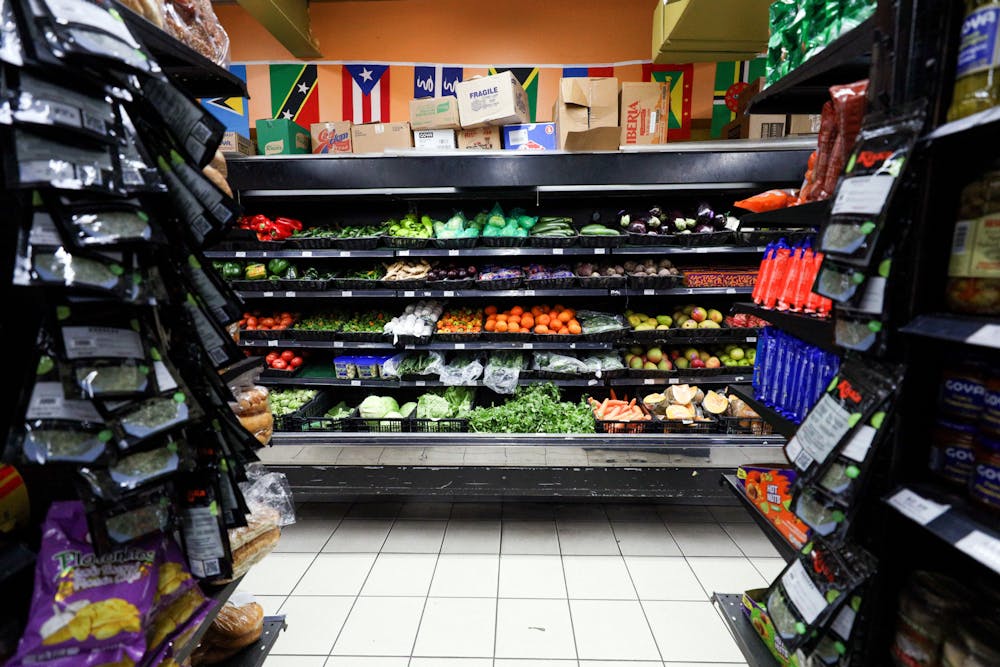On May 22, the U.S. House of Representatives passed a budget reconciliation bill proposing significant changes to the Medicaid and Supplemental Nutrition Assistance Program.
SNAP served an average of 42.1 million participants per month in fiscal year 2023, according to The Economic Research Service, 13.7% of whom are Florida residents. About 3.5 million Florida residents were enrolled in Medicaid in January, according to the Commonwealth Fund.
SNAP supplies low-income families with access to healthy and affordable food. Medicaid allows low-income families to receive affordable health care.
Many families fear the bill’s impact on financial assistance and living expenses.
The “Big Beautiful Bill” proposes up to $300 billion in SNAP funding but would halt future benefit increases beyond inflation, raise work age requirements from 54 to 64 and change the oldest age accepted for dependents from 18 to 8 years old. Medicaid would be cut by $880 billion over the next 10 years.
Billy Hackett, the congressional liaison for Alachua County Democrats, said the government shouldn’t restrict the resources but rather use this to invest in people through these programs.
“SNAP cuts are going to hit low-income Floridians where they would feel it most, and that's at the kitchen table,” Hackett said.
According to Hackett, who reviewed the bill's proposed changes to SNAP, all states would need to pay at least 5% of SNAP benefits and up to 25% of the total cost.
“That's significant, especially in the state of Florida, where we have yet to pass our state budget, and where that deadline is moving within the next three weeks,” Hackett said. “That's several million dollars that the state is going to need to now be able to come up with on fairly short notice.”
Tim Marden, chairman of the Alachua County Republican Party, believes the U.S. government isn’t an efficient allocation of resources. The more government involvement, the greater the inefficiency, he said.
“Anytime you have the government involved, it distorts the markets, and the best solution is the free market solution,” he said.
He said that people can turn to civic organizations, like churches and food pantries, instead of government-funded programs for lower costs and accessible resources.
There is a debate over whether the bill will decrease the number of people who are taking advantage of the bill and if it will harm the people who truly need it.
“What unfortunately happens is you have people taking advantage of the situation and taking advantage of the system, and that spoils it for everyone who arguably are the people who actually need it,” he said.
Amy Trask, a single mother who received financial assistance through the programs, worked three jobs and around 80 hours a week just to support her two kids.
“Even doing all of that, it was really hard to put a roof over our head,” Trask said.
Parents like Trask, who don't have family support, would need to find someone to watch over their children while at work. She used the majority of her tip money for babysitting, which consumed the money that could be used for other expenses.
“I was 19, and my parents, being very religious, essentially said, ‘You have to get married, or we're not going to be involved,’” Trask said. “So I got married.”
It led to Trask being trapped in an abusive relationship, moving to Gainesville to escape with no support. She was tasked with taking care of her two children alone in a new place under new circumstances.
“There were days when I didn't eat anything, but I made sure that they [my kids] were fed,” she said.
One of her kids was born with fluid in their lungs. They were in and out of the fluorescent-lit halls of doctors’ offices, receiving imaging. Medicaid helped her bear the costs.
“There's this common fallacy, or this common idea, that people that are on these resources just don't want to work for it,” she said. “But what do you say to the mom who just got pregnant early and worked three jobs and went to school? They deserve a helping hand, right?”
Trask received help from a local Gainesville church, she said. Every year for Christmas, her kids received presents under the Christmas tree thanks to Trask and donations from the church.
When COVID-19 hit, Trask would come home to find gift cards for groceries. She also attended the Wednesday night Bible studies, where the church provided $5 to feed the whole family.
Although this assistance helped, there were still other expenses that the church could not provide or afford. She was happy she received support but grew frustrated when religion became a tool in politics.
“God is not in the business of making children go hungry,” Trask said. “God is not in the business of making people not have access to life-saving medication or medical treatment.”
Tonya Camaratta, a 49-year-old schoolteacher, believes it’s imperative the community works together.
“I think those who have the least are not interested in waste or abuse,” Camaratta said. “They're interested in survival.”
Contact Jack Vincent at jvincent@alligator.org. Follow him on X @JV_Reports.
Jack Vincent is a journalism junior and the Summer 2025 trend reporter for The Avenue. Apart from writing, you can find him at a local plant shop adding a new plant to his overwheling collection.






